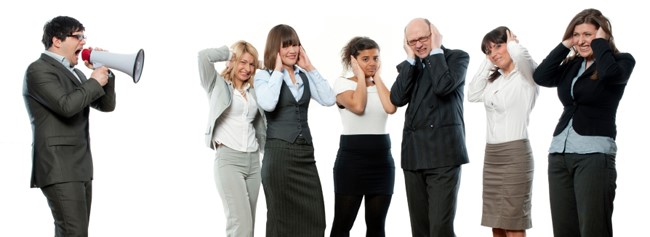THE POWER OF EMPATHY
|
“Leadership
is about empathy. It is about having the ability to relate to and
connect with people for the purpose of inspiring and empowering their
lives.” Oprah Winfrey
|

|
|
Over
the past several months, our country has experienced the most
non-empathetic environment I can remember. Everyone has been shouting at
each other and imagining that their rancorous arguing was changing
someone’s mind, when in fact no one was listening and not one person’s
mind was actually changed.
This
is a dangerous place to be. The fabric of our society is fraying due to
these divisions. “I believe empathy is the most essential quality of
civilization,” said Roger Ebert. “The death of human empathy is one of
the earliest and most telling signs of a culture about to fall into
barbarism,” according to Hannah Arendt. Sadly, in this tumult many
friendships and familial relationships have been torn asunder.
I
do not pretend to know how to fix what’s going on in our country, but I
do have an idea about how we might repair schisms on a personal level.
We
must return to empathy, and it starts with simply being nice to one
another. “The outward expression of empathy is courtesy.” Stewart
Butterfield. Somehow, a lot of folks have come to think that the
challenges and injuries that they have experienced justify their
striking out at others who see life differently. Nothing could be
further from the truth. No one heals themselves by wounding another.
Empathy
isn’t complicated. It starts with a desire to understand another human
being. In the words of C. JoyBell C., “empathy is the ability to step
outside of your own bubble and into the bubbles of other people.”
Empathy is seeing with the eyes of another, listening with the ears of
another, and feeling with the heart of another. True empathy requires
that you step outside your own emotions to view things from the
perspective of the other person.
I
like the way Brene Brown expressed it: “Empathy is simply listening,
holding space, withholding judgment, emotionally connecting, and
communicating that incredibly healing message of you’re not
alone.” Unfortunately, most of us aren’t really listening when we think
we are, especially when the other person holds a different viewpoint
from us. “We think we listen, but very rarely do we listen with real
understanding, true empathy. Yet listening, of this very special kind,
is one of the most potent forces for change that I know.” Carl Rogers.
There
are powerful professional advantages to empathy. For example, empathy
is the key to great sales and marketing. An old adage, though somewhat
dated, remains true: "If you want to know what John Smith buys, you must
see the world through John Smith's eyes."
Years
ago, I learned another benefit to empathy in an unlikely setting: law
school. By its nature, the legal profession tends to be adversarial, so
it’s easy to think there is no place for empathy in that world.
Rex
E. Lee, my law school dean, was an extremely effective appellate
attorney. He personally argued 59 cases before the U.S. Supreme Court as
Solicitor General of the United States and in private practice. He
taught his students that empathy would make them better advocates. He
said: “You must fully understand both sides of the question before the
court. If you can’t articulate your opponent’s side of the case as
readily as your own, you really don’t know the strength or weakness of
your own position.” His counsel has helped me in numerous situations
over the past 40 years.
Are
you looking for a wonderful way to create empathy in a one-to-one
setting? Here’s a great idea from one of my favorite authors, Stephen R.
Covey. He espoused the idea of the Native American talking stick as a
way to listen empathically. In his book, Seven Habits of Highly Effective People, he describes this technique:
The
idea is that only the person holding the stick gets to make their point
and they continue to speak on this point until they feel they have been
fully understood by the listener. The other person is only permitted to
speak insofar as they need to clarify what they’ve heard, or to
demonstrate that they have understood the speaker. Before stating his or
her own point, Person #2 must restate Person #1’s position to Person
#1’s satisfaction.
Once
that has occurred, Person #2 may state his or her own position, and
Person #1 in turn must restate Person #2’s position to Person #2’s
satisfaction before the conversation may move forward.
As
soon as Person #2 feels they had been understood, they pass the talking
stick back to Person #1. After this occurs, Person #1 can begin again
to explain their current thoughts.
Covey’s
Indian Talking Stick principle is a powerful communication device for
resolving disagreements and for exploring the possibility that there may
be a superior answer that neither one of them held before. The best way
forward may not be “your way” or “my way,” but a third way that arises
from truly listening to and understanding each other.
Whether
we use Covey’s talking stick approach, or we just slow down and start
really listening to each other — even those we disagree with — we
urgently need to find more empathy, individually and as a nation. I pray
we can.
No comments:
Post a Comment